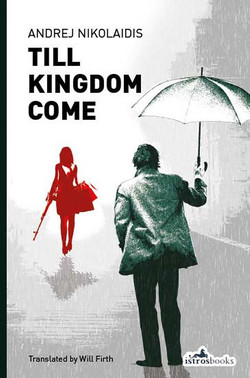Читать книгу Till Kingdom Come - Andrej Nikolaidis - Страница 7
На сайте Литреса книга снята с продажи.
Оглавление2
I don’t believe those stories about pristine beginnings. True, time spoils everything. And yes, everything gets worse over time. But what is prone to spoil is not necessarily good in the beginning. Everything is bad, even at its inception.
Nor do I believe the stories about the wisdom pronounced by children in their alleged innocence. I’m sure there are children cleverer than I was, and perhaps there have been three-year-olds who walked the earth and had something vital to say. But as a small child I only ever blabbered nonsense. We derive that habit from our childhood, ultimately, and it remains with us even in our so-called mature years and through to our death. There is little consolation when you realize that, until the end, you will write and say things it would have been be wiser not to. And it is small comfort that occasionally people manage to utter a few last words before they die that are not necessarily wise but at least not stupid.
When I was a boy, a year seemed as long as eternity to me. Once my grandmother planted an olive-tree seedling in front of the house. I pranced around the fragile sapling for a while and then decided to be pragmatic and ask when we would be able to pick the first olives.
“In ten years’ time,” she said. She could just as well have said ‘never’ – it would have meant the same to me. But from then on I imagined a year like an olive tree. The tree grew as the year passed: quietly and slowly, visible only to the persistent and patient eye.
For me today, the years don’t pass: They fall like trees – not olive trees but the massive trunks of the northern forests. One minute they’re standing tall beneath the sky, the next they’re beneath the boots of the lumberjack. Nothing remains of their might except the tremble of the moist earth when those giants come crashing down.
Yes, today the years fall like chainsawed trees. And the warning voice that shouts, ‘Timber!’ is in vain: they always fall on me. They fall, and it hurts. Maybe the logic is, the more we get battered, the better we can measure time.
Why not throw away our watches and purge all digital devices of the numbers signifying the passage of time? Clocks only ever measure the time of material things: an abstract entity we measure life with, although it is a sterilized and preserved entity that passes life by. People’s time is entirely different; it doesn’t flow uniformly, no two minutes or hours are the same, and its only real measure is the desolation it leaves in its wake.
History is an uninterrupted series of catastrophes – shipwrecks, avalanches, take your pick – where nothing is less important than whether my poor self is going to be dragged under or buried alive. Only arrogant fools expect satisfaction from history; the ordinary, little person is always on the losing end in every brush with history.
And yet that house of ruins, that past built of catastrophes, is all we have.
Maria and I shared a love of Walter Benjamin. Both she and I placed him before all other philosophers, even before the majority of poets, but not above Trakl and Celan. How many bleak winter nights we spent in drunken discussions about his Arcades and the Angel of History... We both had a passion for knowledge, which is so rare in our time. Living in a provincial backwater surrounded by people who consider selfishness and greed an expression of faultless utilitarianism only intensified that passion. If you’ve never lived in the backwoods, you don’t know to what extent your enjoyment of knowledge sets you apart from others... How complete is the solitude of bibliophiles and thinkers, and how strongly such people bind together and become totally dependent on each other when they meet, against all probability, near the scaffolds of the soul that are our small towns.
I’m sure I still know all of Benjamin’s historic-philosophical theses off by heart today, just as Maria did. In the second thesis he says:
“One of the most remarkable characteristics of human nature, writes Lotze, alongside so much selfishness in specific instances, is the freedom from envy, which the present displays toward the future. Reflection shows us that our image of happiness is thoroughly coloured by the time to which the course of our own existence has assigned us. The kind of happiness that could arouse envy in us exists only in the air we have breathed, among people we could have talked to and women who could have given themselves to us (...)”
